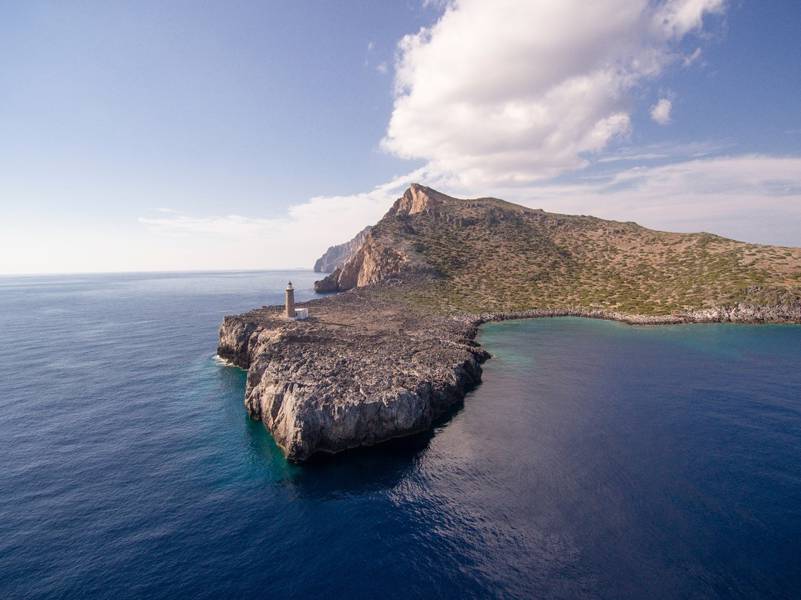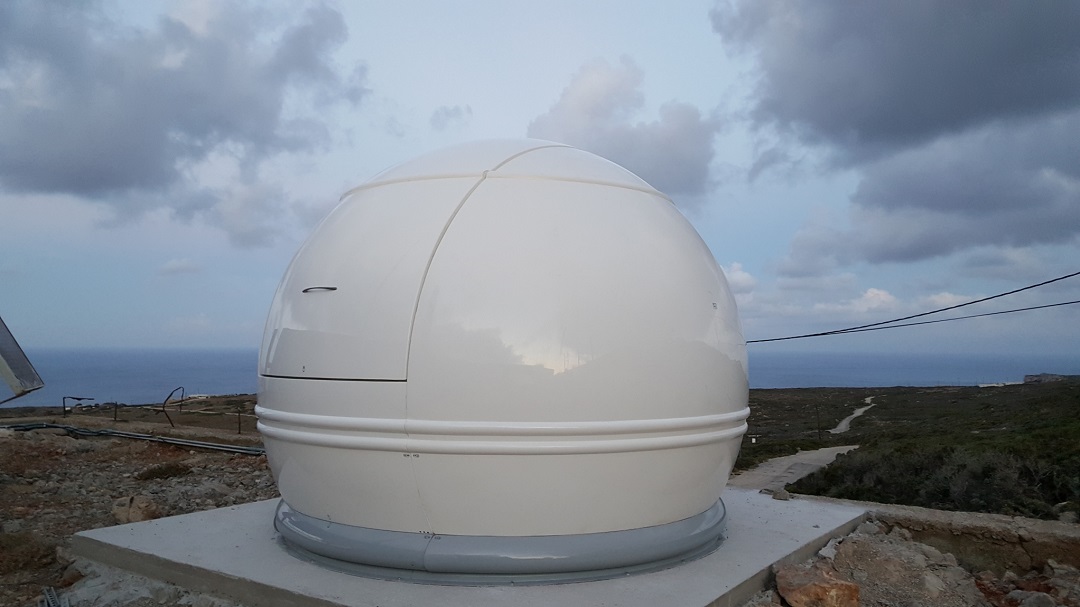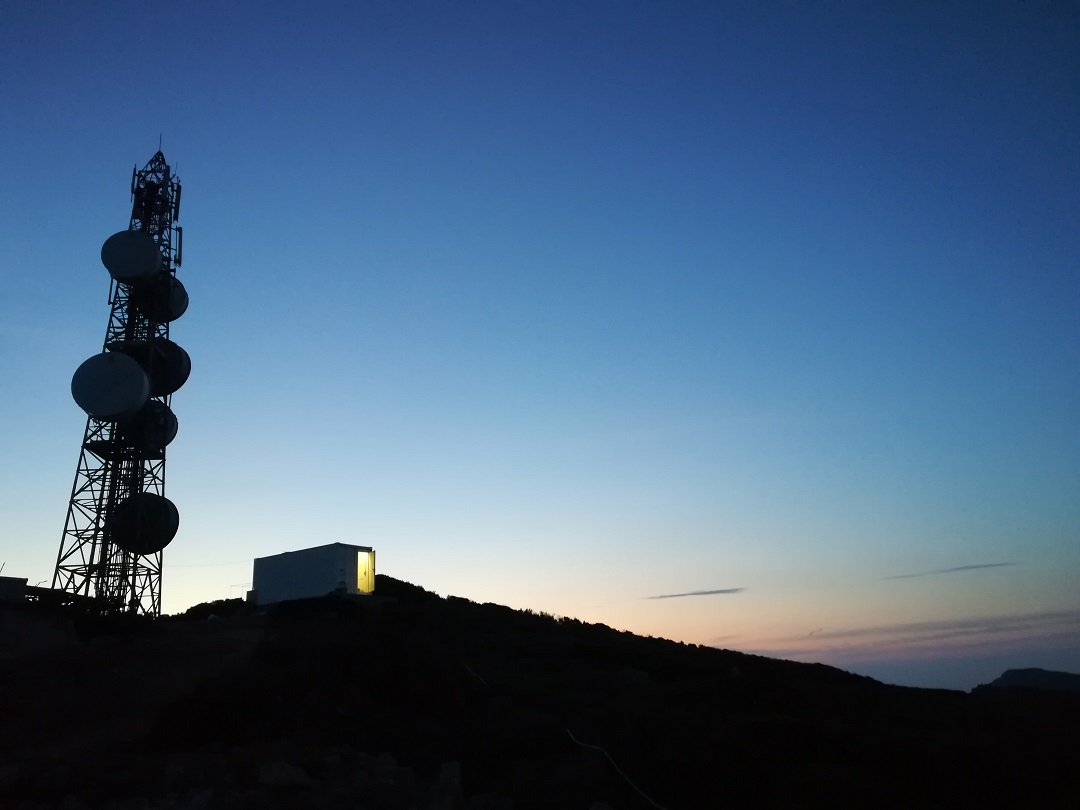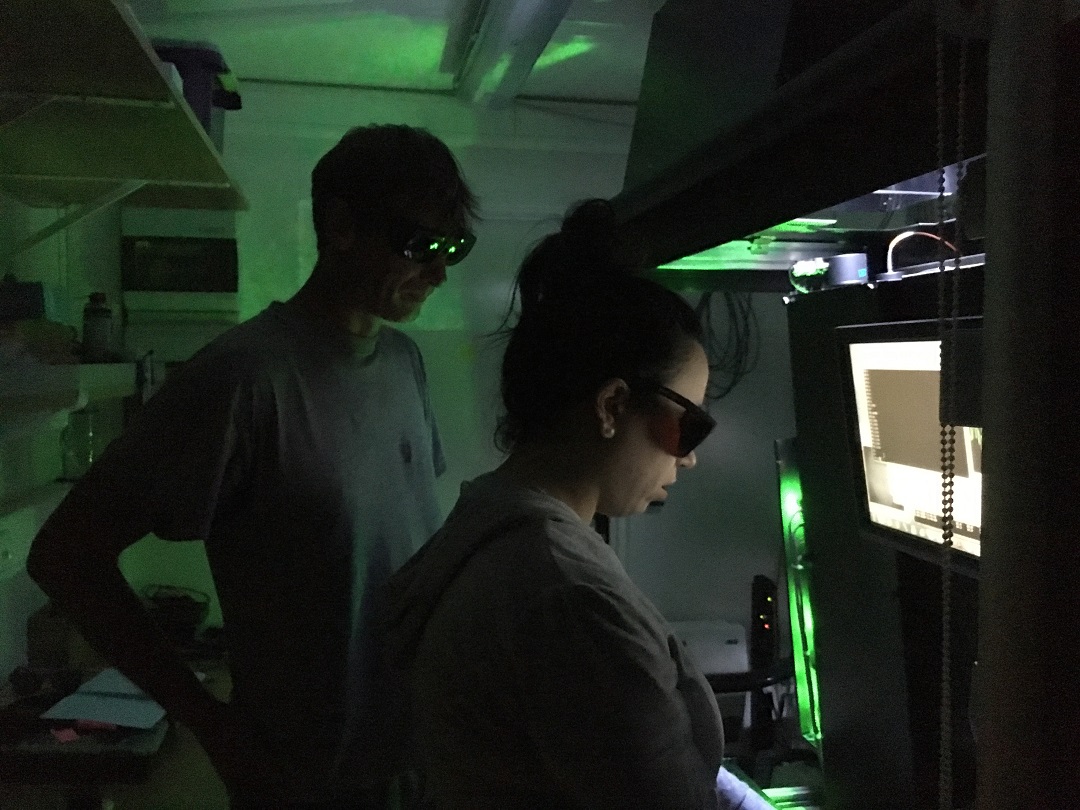
How a Tiny Greek Island Aspires to Become a Pioneer in Global Climate Change Research
Barren, but possessed of astonishing natural beauty, Antikythera is known for the famous Antikythera Mechanism, “the oldest computer in the world,” discovered in 1900 in a shipwreck off the island that continues to captivate scientists to this day.
This remote Greek island whose name is inextricably linked to the history of science now aspires to become a pioneer in global climate change research. In 2018, the National Observatory of Athens, the oldest research center in Greece, created the Panhellenic Geophysical Observatory of Antikythera (PANGEA), a state-of-the-art super-station for monitoring climate change in the Southeastern Mediterranean. This is one of the most climate-sensitive areas on the planet, and the station will fill a very important geographical gap in research on climate change and its implications.
The Stavros Niarchos Foundation (SNF) supported the Observatory’s initiative for the creation of PANGEA from the first, supporting both the development of its infrastructure and the work of the passionate young researchers who are the heart and soul of the Observatory. Overcoming the accessibility and accommodation difficulties the island presents, especially during wintertime, they travel to Antikythera all year round in order to record and send climate change data to Greek and European institutions and global observation programs. In spite of the quarantine and the additional obstacles posed by various restrictions related to COVID-19, the researchers’ work never ceased—not even for a minute. The Observatory is participating, with measurements carried out by PANGEA, in a European survey conducted by the ACTRIS Network to record and assess atmospheric changes resulting from declines in certain types of human activity due to COVID-19.
Climate change is here, and it affects all of us. Systematic research into the phenomenon and its socioeconomic impacts, collective and individual action, and transnational cooperation are among the most necessary tools to address an environmental crisis that may be the biggest single threat humanity faces. With this in mind, we are very proud that SNF’s grant gives us the opportunity to support the National Observatory of Athens in contributing decisively to the global effort to tackle climate change.
Aristi Stathakopoulou
SNF Program Officer, Athens


